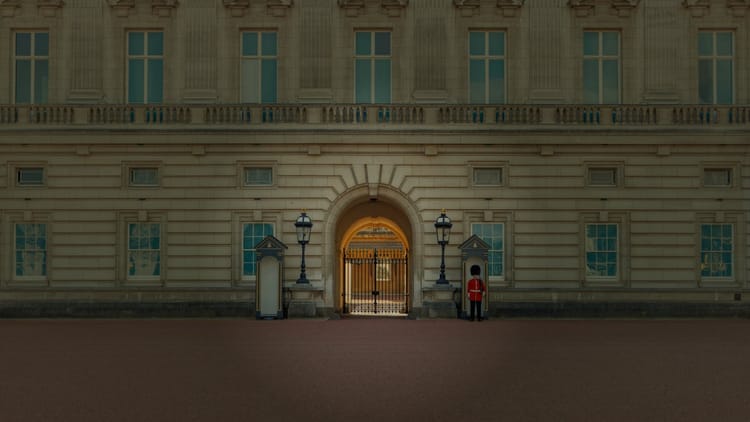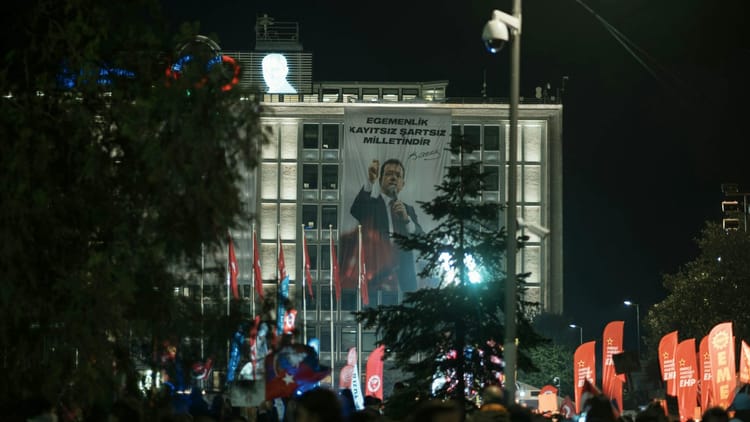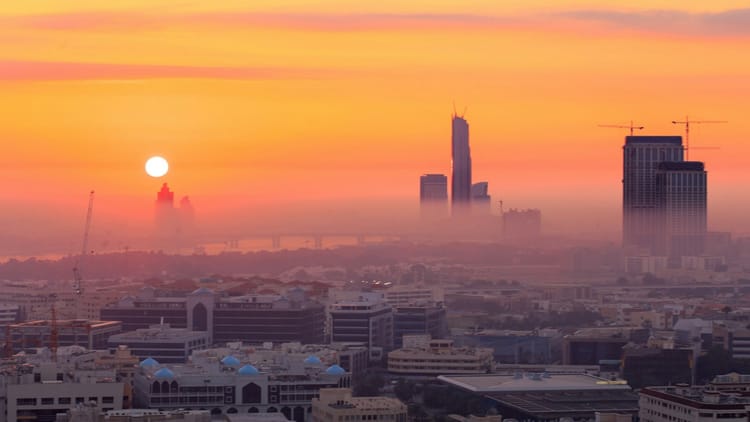With friends like these

Recently: Can new U.S. sanctions on oil from Russia end the war in Ukraine? Abraham Newman on the logic and goals of America’s economic-security strategy.
Today: Can Ukraine’s president fight Russia and corruption at the same time? Investigators in Kyiv have just uncovered how big a challenge that’s going to be.
+ For members: What does Ukraine’s corruption have to do with Russia’s war? Miranda Patrucić on the post-Soviet system Kyiv is still struggling to escape.
& New music from Spiritual Cramp ...
Zelenskyy’s $100 million problem
Ukraine’s energy and justice ministers, Svitlana Grynchuk and Justice Minister Herman Halushchenko, resigned on Wednesday after anti-corruption investigators unveiled a US$100 million embezzlement scheme at Enerhoatom, the state nuclear operator. Investigators say the scheme involved systematic kickbacks from contractors building fortifications to protect energy infrastructure from Russian attacks—infrastructure under assault as prosecutors announced the charges. Officials collected 10 to 15 percent of contract values, laundered the funds, and transferred them abroad, including to Russia. Among those implicated: Timur Mindich, a former business partner of President Volodymyr Zelenskyy from his TV days.
The timing exposes a significant tension at the heart of Ukraine’s wartime governance. Grynchuk and Halushchenko lost their jobs as Russian forces target the very nuclear infrastructure their alleged corruption has compromised. The scandal threatens Ukraine’s EU candidacy status, too—granted on condition that Kyiv can pull off a credible fight against corruption—and follows a political crisis in July, after Zelenskyy temporarily stripped anti-corruption bodies of independence, triggering the most severe domestic backlash since Russia’s invasion began. He reversed course only after nationwide protests and G7 ambassadors expressing their alarm.
That episode raised questions about Zelenskyy’s commitment to reform. The investigation, which took 15 months and involved 1,000 hours of audio recordings, raises them further, with close associates implicated—and Mindich having reportedly fled Ukraine altogether. And securing Western weapons for an urgent war effort depends no less than ever on Ukrainian credibility. This doesn’t help. … See “Old habits die hard,” below.

Meanwhile
- Flamingos over Oryol. Russia launched large-scale missile and drone attacks on Kyiv overnight on Wednesday, with explosions across the capital and fires in residential buildings. Ukraine’s military confirmed using new Flamingo missiles—with a claimed 3,000-kilometer range—in strikes on targets in occupied Crimea and Russia’s Oryol Oblast. Russian forces continue pressing in southeastern Zaporizhia, where Oleksandr Syrskyi, the Ukrainian Armed Forces’ commander in chief, said the situation has "significantly worsened," and around Pokrovsk, a key eastern logistics hub now nearly encircled.
- A new tipping point in the West Bank. Israeli President Isaac Herzog and military chief Eyal Zamir issued unusual public condemnations on Wednesday of settler violence in the occupied West Bank. The next day, settlers torched the Hajja Hamida Mosque in Deir Istiya, spray-painting threats against Zamir. The UN reported 264 settler attacks on Palestinians in October—the highest monthly total since tracking began in 2006. U.S. Secretary of State Marco Rubio is among those warning the violence could undermine the fragile ceasefire in Gaza.
- Three-week peace. Cambodia and Thailand clashed and traded accusations on Wednesday, with one civilian killed and three wounded, less than three weeks after U.S. President Donald Trump witnessed the signing of their peace declaration in Malaysia. Thailand had suspended the agreement on Monday after a landmine explosion injured four soldiers. On Thursday, Cambodia evacuated 250 families from the border village of Prey Chan. The countries fought a five-day war in July that killed 43 and displaced 300,000.
- The Ford in the Caribbean. Venezuela launched what its defense minister, Vladimir Padrino López, called a “massive mobilization” of military forces on Tuesday in response to the USS Gerald R. Ford entering Caribbean waters. The Ford strike group includes nine aircraft squadrons, two guided-missile destroyers, and more than 4,000 sailors. Venezuela’s President Nicolás Maduro is accusing Washington of plotting regime change; the Pentagon described the deployment as counter-narcotics operations. U.S. forces have conducted at least 19 airstrikes on suspected drug vessels since September, killing around 76 people. CBS News, CNN
- Four Republicans, 218 signatures. Mike Johnson, the speaker of the U.S. House of Representatives, said on Wednesday that the chamber will vote next week on legislation compelling the Department of Justice to release all case files related to Jeffrey Epstein. The newly sworn-in Representative Adelita Grijalva became the 218th signature on a discharge petition forcing the vote. Four Republicans—Thomas Massie, Marjorie Taylor Greene, Lauren Boebert, and Nancy Mace—joined all Democrats despite White House pressure. Trump has called the effort “the Jeffrey Epstein Hoax.” The vote follows emails in which Epstein wrote Trump “knew about the girls.” … See “Epstein’s version of events.”

All newsletter, no noise
Khaki is a free app built exclusively for managing and reading newsletters. Clean interface, no distractions, and only the newsletters you want to see—not everything else in your usual inbox.
Sign up with Gmail and the access code NEWSLETTER to try it for yourself.
From the files
Old habits die hard
What does Ukraine’s corruption have to do with Russia’s war? Miranda Patrucić on the post-Soviet system Kyiv is still struggling to escape.
—John Jamesen Gould, Miranda Patrucić

Corruption in Ukraine has roots in a system Putin has perfected, where bribes aren’t dysfunction but machinery. It’s one of the main ways autocrats hold power and extend their influence—and one of the main blights on countries struggling with the legacies of Soviet domination. Here in The Signal, the investigative journalist Miranda Patrucić talks about the machinery, how Ukraine’s Revolution of Dignity tried to break from it, and the resiliency of anticorruption in the Ukrainian society.
- On Putin’s kleptocratic playbook: “The combination of rhetorical anti-corruption and actual corruption has been a crucial element of Putin’s playbook from the beginning. He speaks the language of law and order, and then he gives money, access, and power to those who do what he wants them to do—and squashes those who stand in his way.”
- On Ukraine’s Revolution of Dignity being inseparable from anti-corruption: “The protests were about citizens saying no to corruption, no to the terrible consequences of corruption for democracy and life in Ukraine, and no to the Russian influence over the country that corruption enabled. ... They were inseparable.”
- On post-conflict corruption risks: “It’s been a pattern in many post-war countries, including mine—I come from Bosnia—that a significant amount of reconstruction money has been stolen. I think Ukraine has a real chance not to repeat this pattern. But it’s a question.”
Your loyal guide to a changing world.
Membership with The Signal means exclusive access to premium benefits:
- Regular profiles on the questions behind the headlines
- In-depth feature interviews with our network of specialist contributors from across America and around the world
- The despatch, our weekly current-affairs and cultural-intelligence briefing
- Early access to new products, including print extras
It also means vital support for an independent new enterprise in current-affairs journalism.
New music
‘Violence at the Supermarket’
In 1979, The Clash sang about feeling lost in the supermarket. Now, the San Francisco punks Spiritual Cramp have updated the sentiment for 2025, smartly echoing The Clash’s reggae-infused rock. The lyrics’ protagonist keeps running into someone “dressed up head to toe” with “family money” but “pretending to be poor.”





